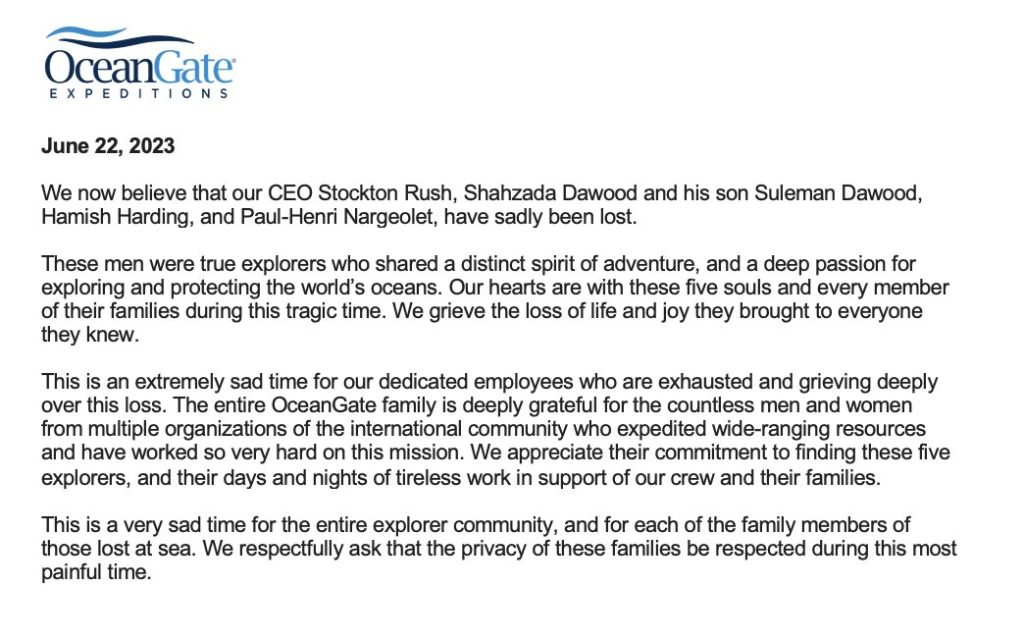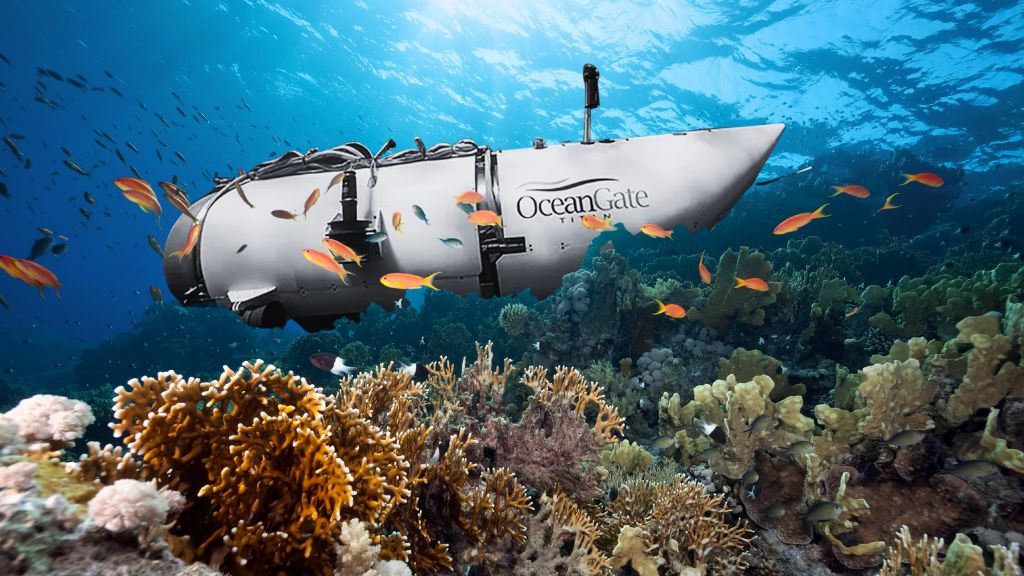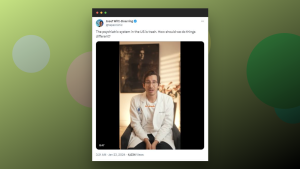Hamish Harding, a British aviator, along with Paul-Henri Nargeolet, a French explorer, Shahzada Dawood, a British-Pakistani businessman, his son Suleman Dawood, and Stockton Rush, the CEO of OceanGate, had embarked on a deep-sea expedition to explore the remains of the Titanic ship. Even though this may seem like a heroic act at first because of how brave they were, and sold in the obituary by Ocean Gate calling the deceased “explorers,” it is important to understand all of the complexities and consequences, such as the psychological effects on families and the larger social issues it brings.

Psychological Impact
Because of this terrible event, the families of the people who died may develop post-traumatic stress disorder (PTSD). Contributed by other social factors, it might advance to Complex PTSD. Also, grief can be passed down from one generation to the next if families internalize the heroic story of how their loved ones died. That would be an event of inter-generational PTSD subjecting the inheritor to social critique. This could have an effect on future generations and make people wonder how such events affect people’s minds in the long run.
Choice of Death
This tragedy makes us think more about the choices people have when it comes to their own deaths. In places where euthanasia is not allowed, people with very bad health without social support often don’t have the choice of how they want to die. In the OceanGate Submersible Tragedy, on the other hand, wealthy people paid $250,000 each, for a fun trip where they had a 50/50 chance of living or dying. This difference in decisions based on wealth shows how people from different backgrounds have different access to life-changing events.
The Privilege of Buying Death
The OceanGate Submersible Implosion shows how terrible it is that people with money can seem to buy the chance to risk their lives, while people without money don’t have the same options. This difference in income is a thought-provoking problem that shows how unequal society is as a whole. It makes you wonder about access to life-changing events, chances, and even the right to decide your own fate. Such differences widen the gap between the rich and the poor and show how important it is to live in a society where everyone has the same rights and choices and not just the rich.
Responsibility and Due Diligence
It’s important to remember that trips like this need permission from foreign bodies, and the site of the Titanic is owned by the United States. Even though there were signs and possible risks, the CEO of OceanGate was given permission without enough research. The state of the submersible’s hull and its ability to handle the pressure at a depth of 4000 meters (13,120 feet) of the deep sea were not taken into account, which led to a tragic accident. This makes me wonder if it is the job of officials and organizations to put safety first and make sure that high-risk expeditions are carefully evaluated before permission is given.
OceanGate Submersible Implosion
The OceanGate Submersible Implosion was a terrible thing that needs to be talked about and thought about. Even though the first impression might be of courage, it’s important to think about how it affects the families’ mental health and ask for a psychological evaluation. This event tells us that we have a duty to do our research, put safety first, and think about the results of risky actions. Also, it shows the need for a more fair society where the right to choose death is not based on a person’s socioeconomic standing. This would make sure that everyone has the same chances and access to life-changing experiences.




